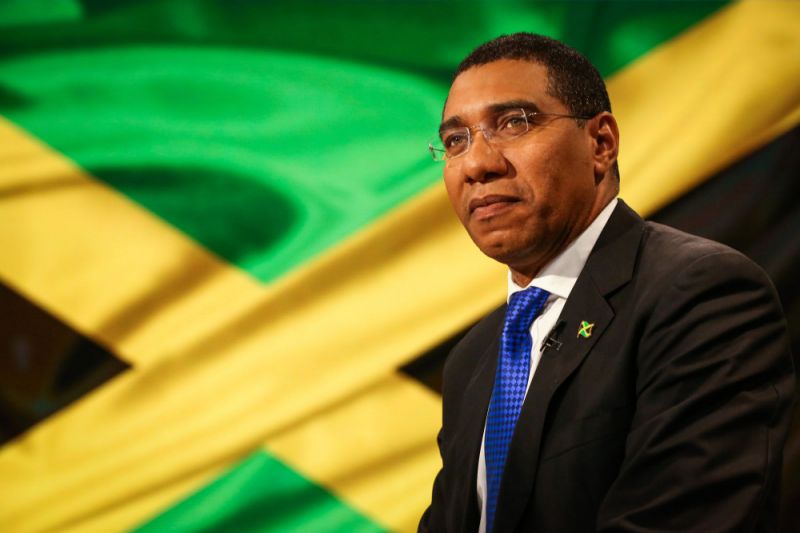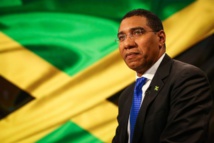Earlier on Friday, opposition leader Peter Phillips announced his resignation as it appeared he was going to be defeated, daily The Gleaner reported.
Phillips said he had written to the chairman of his People's National Party (PNP) and asked for arrangements to be made to select a new head, according to the daily.
The PNP lagged far behind, with only 14 seats.
The Gleaner called it "a shocking defeat for the PNP, which saw a surprising upset for several of its top stalwarts and popular names."
About 1.9 million people were eligible to elect members of the House of Representatives on the largest island in the English-speaking Caribbean.
Voter turnout was given as 37 per cent, down from 48.4 per cent in 2016.
Campaign rallies and door-to-door campaigning had been restricted after the number of new coronavirus cases surged.
Jamaica has recorded nearly 3,000 infections and almost 30 deaths from Covid-19, the disease caused by the virus.
Holness was nevertheless seen as having done a relatively good job in handling the pandemic, including by quickly closing the borders in March.
The government has also received praise for its economic policies, with unemployment falling to a historic low of 7 per cent in October 2019, according to World Bank figures.
But the pandemic left hundreds of thousands of Jamaicans without jobs or with low incomes, leading to the government reopening the tourism-reliant island's borders in mid-June.
The opposition criticized Holness for calling elections during the pandemic, accused the government of corruption and pointed to high crime levels.
The elections took place under safety measures, including temperature checks and face masks.
Phillips said he had written to the chairman of his People's National Party (PNP) and asked for arrangements to be made to select a new head, according to the daily.
The PNP lagged far behind, with only 14 seats.
The Gleaner called it "a shocking defeat for the PNP, which saw a surprising upset for several of its top stalwarts and popular names."
About 1.9 million people were eligible to elect members of the House of Representatives on the largest island in the English-speaking Caribbean.
Voter turnout was given as 37 per cent, down from 48.4 per cent in 2016.
Campaign rallies and door-to-door campaigning had been restricted after the number of new coronavirus cases surged.
Jamaica has recorded nearly 3,000 infections and almost 30 deaths from Covid-19, the disease caused by the virus.
Holness was nevertheless seen as having done a relatively good job in handling the pandemic, including by quickly closing the borders in March.
The government has also received praise for its economic policies, with unemployment falling to a historic low of 7 per cent in October 2019, according to World Bank figures.
But the pandemic left hundreds of thousands of Jamaicans without jobs or with low incomes, leading to the government reopening the tourism-reliant island's borders in mid-June.
The opposition criticized Holness for calling elections during the pandemic, accused the government of corruption and pointed to high crime levels.
The elections took place under safety measures, including temperature checks and face masks.









 Home
Home Politics
Politics











